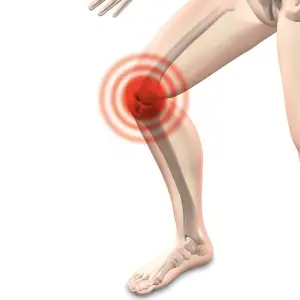Unveiling the Nutritional Power of Pretzels: Are They Really Healthy?

- Understanding the Ingredients: What Makes Up a Pretzel?
- Calorie Content: How Many Calories are in a Serving of Pretzels?
- Fat Content: Examining the Fat Levels in Pretzels
- Sodium Levels: The Salt Factor in Pretzels
- Fiber Content: Does the Pretzel Offer Any Dietary Fiber?
- Protein Content: Evaluating the Protein Content in Pretzels
- Micronutrients: Exploring the Vitamins and Minerals in Pretzels
- Health Benefits: Are There Any Positive Effects of Eating Pretzels?
Pretzels are a popular snack enjoyed by people of all ages. But have you ever wondered about their nutritional value? In this article, we will delve into the ingredients that make up a pretzel and examine its calorie, fat, sodium, fiber, protein, and micronutrient content. We will also explore the potential health benefits of including pretzels in your diet. So let's unravel the nutritional power of pretzels and find out if they really are a healthy choice!
Understanding the Ingredients: What Makes Up a Pretzel?
Pretzels are made from a simple combination of flour, water, yeast, and salt. The dough is typically shaped into a knot or twisted shape before being baked to perfection. Some variations may include additional ingredients such as sugar, malt, or oil for added flavor and texture. The basic ingredients in pretzels make them a relatively simple snack option that can be enjoyed on its own or paired with dips and spreads.
Calorie Content: How Many Calories are in a Serving of Pretzels?
When it comes to snacking, one of the first things we consider is the calorie content. So, how do pretzels measure up? A typical serving of pretzels, around 1 ounce or 28 grams, contains approximately 110-120 calories. This makes them a relatively low-calorie option compared to other snacks like chips or cookies. However, it's important to note that the calorie count can vary depending on the brand and additional flavorings or coatings added to the pretzels. So, always check the nutrition label for accurate information.
Fat Content: Examining the Fat Levels in Pretzels
When it comes to the fat content in pretzels, there is good news for those watching their waistlines. Pretzels are generally low in fat compared to other snack options. A typical serving of pretzels contains only a small amount of fat, usually around 1-2 grams.
The low-fat content in pretzels can be attributed to the way they are prepared. Traditional pretzels are made by boiling the dough before baking, which helps to create their unique texture and taste. This cooking method eliminates the need for excessive amounts of oil or butter that are often used in other baked goods.
However, it's important to note that not all pretzels are created equal when it comes to fat content. Some flavored or coated varieties may contain additional fats from ingredients like cheese, chocolate, or butter. These types of pretzels should be enjoyed in moderation as part of a balanced diet.
For those looking for a healthier option, there are also low-fat or fat-free pretzel alternatives available on the market. These options can provide a satisfying crunch without adding unnecessary calories from fat.
Overall, while pretzels may not be completely devoid of fat, they offer a relatively low-fat snack choice compared to many other indulgent treats. As with any food, portion control is key when enjoying pretzels as part of a healthy diet.
Sodium Levels: The Salt Factor in Pretzels
One of the key factors to consider when evaluating the nutritional value of pretzels is their sodium content. Pretzels are known for their salty taste, and this is due to the high levels of sodium they contain.
A typical serving of pretzels can contain anywhere from 200 to 500 milligrams of sodium. This may not seem like a significant amount, but it can quickly add up if you consume multiple servings or pair your pretzels with other salty snacks or dips.
Excessive sodium intake has been linked to various health issues, including high blood pressure and an increased risk of heart disease. It is important to be mindful of your overall sodium intake and balance it with other low-sodium foods in your diet.
If you are watching your sodium intake, there are low-sodium or reduced-sodium options available in the market. These alternatives can provide a healthier option for those who still want to enjoy the crunch and flavor of pretzels without consuming excessive amounts of salt.
It's worth noting that not all types of pretzels have the same sodium levels. Some varieties, such as whole wheat or multigrain pretzels, may have slightly lower sodium content compared to traditional white flour pretzels. Reading nutrition labels and choosing wisely can help you make more informed decisions about which type of pretzel fits best into your dietary needs.
While pretzels can be a tasty snack option, it's important to be aware of their high sodium content. Moderation is key when enjoying these treats, especially if you are watching your salt intake for health reasons.
Fiber Content: Does the Pretzel Offer Any Dietary Fiber?
Fiber is an essential component of a healthy diet, aiding in digestion and promoting satiety. When it comes to pretzels, however, the fiber content is relatively low. A serving of pretzels typically contains around 1-2 grams of dietary fiber. While this may not seem significant, every bit counts towards meeting your daily fiber needs. To increase the fiber intake, consider pairing pretzels with high-fiber foods like fruits or vegetables.
Protein Content: Evaluating the Protein Content in Pretzels
Pretzels are not typically known for their high protein content. However, they do contain a small amount of protein. On average, a serving of pretzels provides about 2 grams of protein. While this may not seem like much, it can still contribute to your daily protein intake. Protein is essential for building and repairing tissues in the body, as well as supporting immune function and hormone production. Although pretzels are not a significant source of protein, they can still be enjoyed as part of a balanced diet that includes other protein-rich foods such as meat, poultry, fish, beans, and dairy products.
Micronutrients: Exploring the Vitamins and Minerals in Pretzels
While pretzels may not be a significant source of vitamins and minerals, they do contain some essential micronutrients. Pretzels are a good source of iron, which is important for oxygen transport in the body and plays a crucial role in energy production. They also provide small amounts of calcium, which is essential for strong bones and teeth.
In addition to iron and calcium, pretzels contain trace amounts of other minerals such as magnesium, phosphorus, and potassium. These minerals are involved in various bodily functions including nerve function, muscle contraction, and maintaining fluid balance.
When it comes to vitamins, pretzels are not particularly rich sources. However, they do contain small amounts of B vitamins such as niacin (vitamin B3) and thiamine (vitamin B1). These vitamins play important roles in metabolism and energy production.
While pretzels may not be packed with an abundance of micronutrients like fruits or vegetables, they can still contribute to your overall nutrient intake. It's important to remember that pretzels should be enjoyed as part of a balanced diet that includes a variety of nutrient-rich foods.
Health Benefits: Are There Any Positive Effects of Eating Pretzels?
While pretzels may not be the most nutrient-dense snack, they do offer some health benefits. One advantage is their low fat content compared to other snacks like chips or cookies. This makes them a better option for those watching their weight or trying to maintain a healthy diet.
Another benefit of pretzels is their high carbohydrate content, which provides a quick source of energy. This can be especially beneficial for athletes or individuals engaging in physical activity.
Additionally, pretzels are a good source of iron, which is essential for the production of red blood cells and oxygen transport in the body. They also contain small amounts of B vitamins, such as niacin and folate, which play a crucial role in metabolism and cell function.
However, it's important to note that pretzels should be consumed in moderation due to their high sodium content. Excessive sodium intake can lead to increased blood pressure and other health issues.
In conclusion, while pretzels may not be the most nutritious snack option, they do offer some health benefits such as being low in fat and providing quick energy. However, it's crucial to balance their consumption with other nutrient-rich foods and be mindful of portion sizes to maintain a healthy diet.
In conclusion, pretzels can be a part of a balanced diet when consumed in moderation. While they are low in fat and calories, they can be high in sodium. However, the fiber content in pretzels can aid digestion and promote satiety. Additionally, they provide some essential micronutrients like iron and B vitamins. It is important to consider portion sizes and choose whole grain options for added nutritional benefits. So, enjoy pretzels as an occasional snack but remember to balance them with other nutrient-rich foods for a well-rounded diet.
Published: 07. 01. 2024
Category: Health



